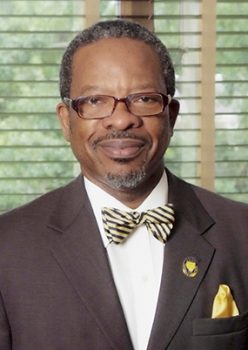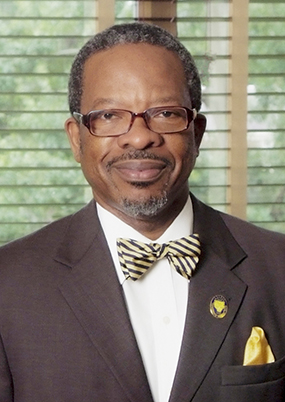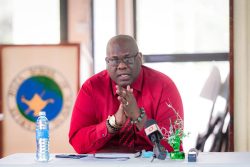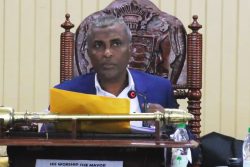University of Guyana (UG) Vice-Chancellor Professor Ivelaw Griffith is not backing down from his insistence that wage hikes for academic staff be tied to their performance.
“This university has lots of performance issues,” Griffith noted on Friday, while saying it would be irresponsible of him to negotiate salaries and not speak of the performance of staff.
The two workers unions, the University of Guyana Senior Staff Association (UGSSA) and the University of Guyana Workers’ Union (UGWU), have said that performance cannot be part of any agreement for 2017 wages and salaries.
Speaking to reporters after the installation of the new student council, Griffith explained that he is of the view that delinquent lecturers who do not submit their grades in timely manner should not be given a salary increase.

“It is not fair to students and it is not fair to the lecturers who submit grades on time… every lecturer is responsible for doing the right job every time. We want timely submission of grades. If you don’t submit… you should not get a salary increase,” he declared.
Following a meeting last Wednesday with the UGSSA and UGWU and trade unionist Lincoln Lewis, Griffith said that they had extracted the performance criteria clause from the original agreement and placed it as an appendix item in the document.
He explained that the administration has prepared the final document, which he has to review before tabling it once again for the unions.
“There is one principle that I enunciated that will not change: that is the performance which has to be a part of the solution…,” he said, while acknowledging that the unions shared a different view. “The union was saying there should not be anything about performance but I said no. So, I am hoping that they are bendable and they didn’t raise any objections,” said Griffith while noting that he is ready to pay the increases.
Following negotiations with the unions, the UG administration recently announced its final pay hike offer of 8% and 6% to support and academic staff members, respectively, retroactive to January 1. Griffith indicated that the administration “had done enough” and “nothing further would be provided.”
Addressing the allegation that the university administration was being secretive about the breakdown of $182 million that was allocated for the increases, Griffith maintained that it is not necessary. “The union wants to see if there is any space for more and in the context of affordability we were working on it is what we have put on the table and that is what we can afford. I will not be offering something we can’t find the money for. The $182 million is what we have and can afford…,” he said.
The unions were adamant that the administration had failed to honour all their requests for financial and other information and refused to provide the breakdown of the $182 million.
The unions are saying that according to their calculations, if $182 million was to be paid solely to academic and support staff, considering all the payments to be made for the various allowances, pensions, and NIS, it would allow for a higher offer to be made to staff.
Unions urge reform to insulate council from interference
Meanwhile, the two unions on Friday said that the impasse over wages and salaries has dragged on in part due to the absence of the University Council.
In a joint statement, the UGSSA and the UGWU noted that the life of the previous Council ended on July 12 and there has been no explanation to date about why a new Council is not in place, although they said they understand that Minister of Education Nicolette Henry is working on its formation.
The unions noted that a Governance Committee created by the last University Council is currently considering amendments to the existing UG Act and Statutes. “The Unions, in keeping with their longstanding interest in governance, made a submission to that Committee. We feel that one of the key objectives of any reform of the existing governance structure of the University is to ensure that the Council is able to function without political interference,” they said.
As part of a movement towards this, the unions noted that they have always advocated for an appointments process for Council members that allowed the various interest groups to nominate their representatives, and that this was the approach adopted by former Minister of Education Dr Rupert Roopnaraine. “We hope that Minister Henry will also allow the organisations to nominate representatives, and so help to facilitate the Council functioning in as non-partisan a way as possible. We are interested in having a Council that seeks what is the best for the University and undertakes to perform its oversight role with diligence and care,” they added, while expressing the hope that the new Council will be in place for the University’s Annual Business Meeting, which is usually scheduled for Convocation Week in early November.










